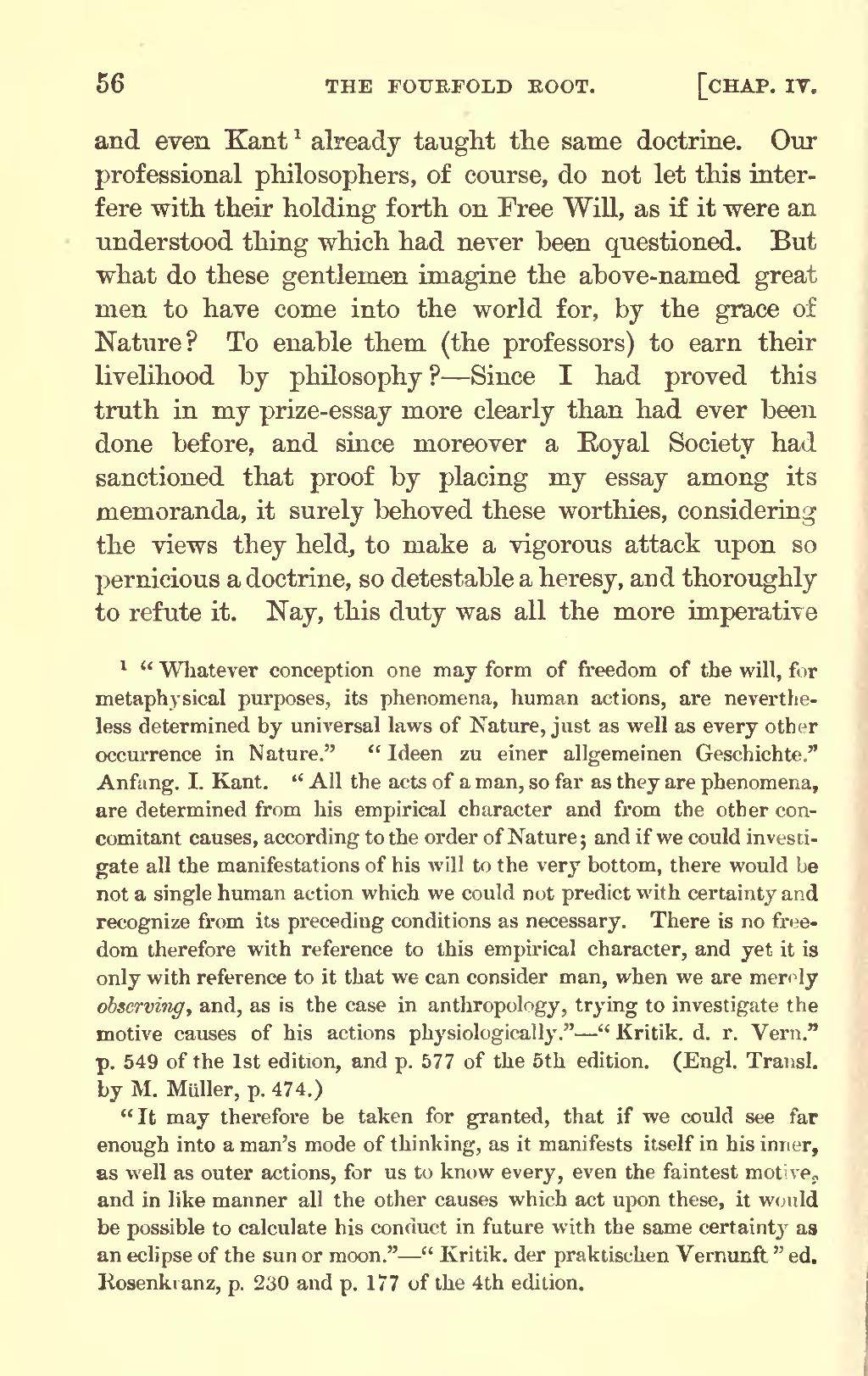and even Kant [1] already taught the same doctrine. Our professional philosophers, of course, do not let this interfere with their holding forth on Free Will, as if it were an understood thing which had never been questioned. But what do these gentlemen imagine the above-named great men to have come into the world for, by the grace of Nature? To enable them (the professors) to earn their livelihood by philosophy?—Since I had proved this truth in my prize-essay more clearly than had ever been done before, and since moreover a Royal Society had sanctioned that proof by placing my essay among its memoranda, it surely behoved these worthies, considering the views they held, to make a vigorous attack upon so pernicious a doctrine, so detestable a heresy, and thoroughly to refute it. Nay, this duty was all the more imperative
- ↑ "Whatever conception one may form of freedom of the will, for metaphysical purposes, its phenomena, human actions, are nevertheless determined by universal laws of Nature, just as well as every other occurrence in Nature." " Ideen zu einer allgemeinen Geschichte." Anfang. I. Kant. "All the acts of a man, so far as they are phenomena, are determined from his empirical character and from the other concomitant causes, according to the order of Nature; and if we could investigate all the manifestations of his will to the very bottom, there would be not a single human action which we could not predict with certainty and recognize from its preceding conditions as necessary. There is no freedom therefore with reference to this empirical character, and yet it is only with reference to it that we can consider man, when we are merely observing, and, as is the case in anthropology, trying to investigate the motive causes of his actions physiologically." "Kritik. d. r. Vern." p. 549 of the 1st edition, and p. 577 of the 5th edition. (Engl. Transl. by M. Miiller, p. 474.) "It may therefore be taken for granted, that if we could see far enough into a man's mode of thinking, as it manifests itself in his inner, as well as outer actions, for us to know every, even the faintest motive, and in like manner all the other causes which act upon these, it would be possible to calculate his conduct in future with the same certainty as an eclipse of the sun or moon." "Kritik. der praktischen Vernunft " ed. Rosenkranz, p. 230 and p. 177 of the 4th edition.
